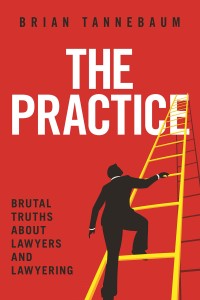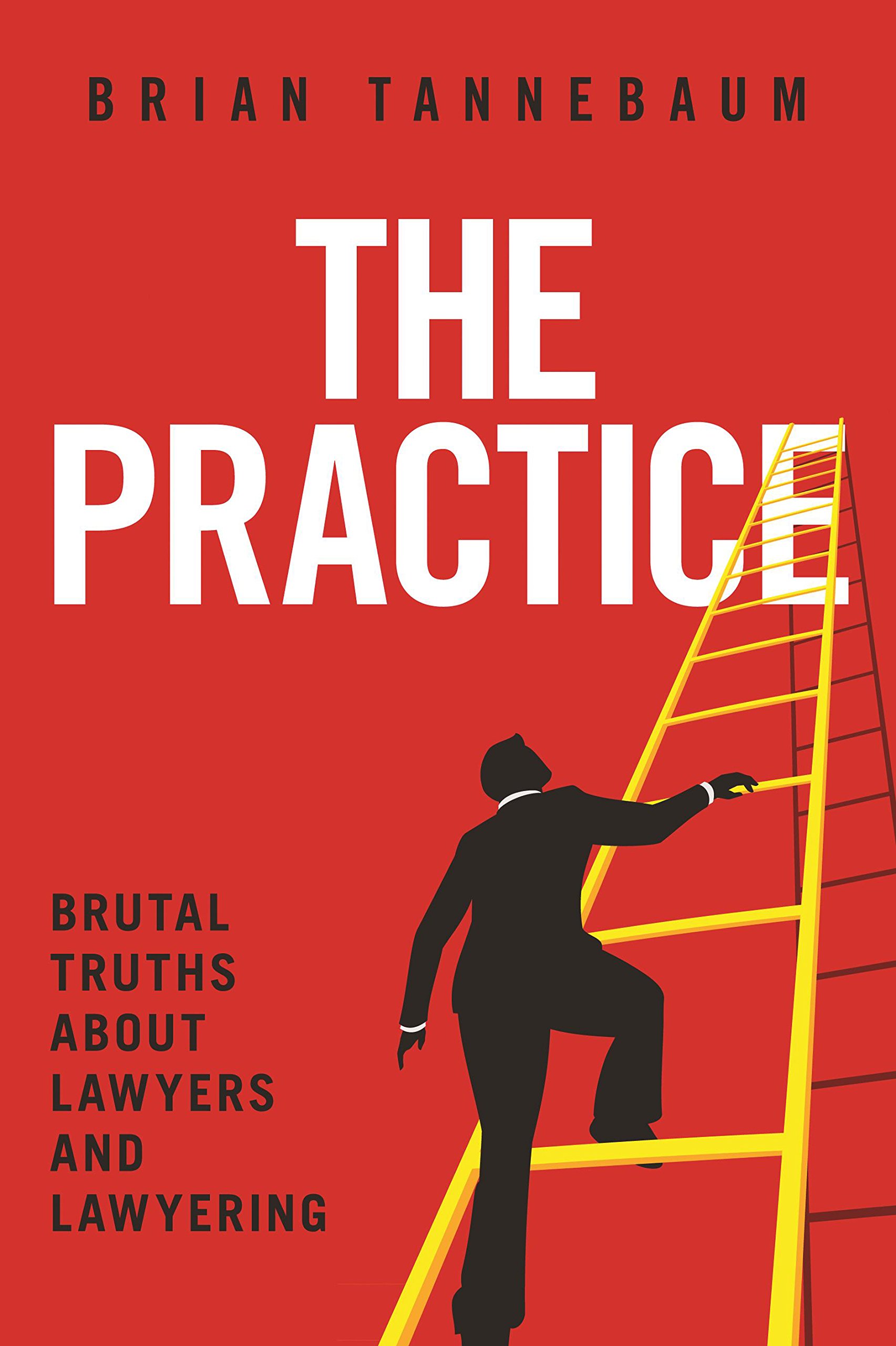Next in a series of long overdue book reviews, here are my thoughts on The Practice: Brutal Truths About Lawyers And Lawyering by Brian Tannebaum.
Go buy this book right now.
 I’ll elaborate. As with my review of Supreme Ambitions, I’ll add some disclaimers up front. I’ve known Tannebaum for years now and we share the same excellent editor at the ABA, Jonathan Malysiak. I’ve actually heard people describe my book, The Marble and The Sculptor, and The Practice as “bookends.” That is, they are similar in tone and content, but one written by a new lawyer (that’s me) and one with twenty years of experience (Tannebaum). This is partially true because I drew inspiration from Tannebaum’s writing and thoughts for my book (and thanked him in my Acknowledgements). So as with Lat’s book, don’t expect this to be an unbiased review.
I’ll elaborate. As with my review of Supreme Ambitions, I’ll add some disclaimers up front. I’ve known Tannebaum for years now and we share the same excellent editor at the ABA, Jonathan Malysiak. I’ve actually heard people describe my book, The Marble and The Sculptor, and The Practice as “bookends.” That is, they are similar in tone and content, but one written by a new lawyer (that’s me) and one with twenty years of experience (Tannebaum). This is partially true because I drew inspiration from Tannebaum’s writing and thoughts for my book (and thanked him in my Acknowledgements). So as with Lat’s book, don’t expect this to be an unbiased review.
The Practice is an accumulation of twenty years of experience “in the trenches.” The book has a “been there, done that” attitude throughout that is refreshing. Tannebaum isn’t afraid to call a turd, a turd, and does so frequently through the book. Tannebaum prides himself on being a certified crank and skeptic when it comes to most of the advice offered to lawyers. Instead, Tannebaum offers lessons learned coming up through the ranks and going on to starting his own practice.
Right off the bat, Tannebaum starts the book off with an important question that many new lawyers never ask themselves: “what type of lawyer do you want to be?” Are you the type of lawyers who is willing to do anything? Any job, any case, any client? Or do you want to be more discerning? Or do you choose an area of law that is right for you? The right types of cases and clients? Tannebaum also goes into his personal code of ethics, something that should be spread far and wide among lawyers.
The book goes on to discuss the ups and downs of marketing and networking. What has worked for Tannebaum in the past and what has not (spending time with real people works, AdWords doesn’t). How to handle referrals and what to do about handling your fees. The book is an aggregation of what law school doesn’t teach you. Even then, the book is only a guide. Tannebaum can’t make you successful, only you can make you successful. The Practice can help you along the way, but the message through the book is clear: whether you succeed or fail in starting a practice is your personal responsibility.
If you’re a lawyer of any age and want to learn about hard work, developing relationships, and help in discovering what type of lawyer you want to be, this is the book for you.














